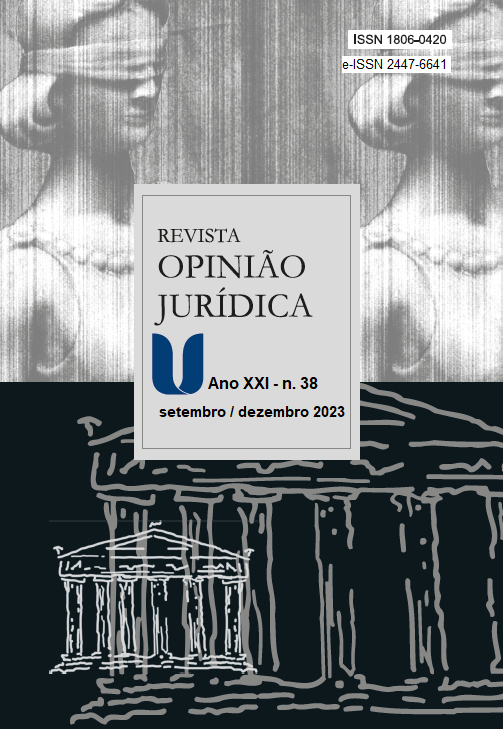THE REGULATION PROCESS OF WOMEN´S LABOR IN BRAZIL IN VIEW OF THE THEORY OF CAROL SMART: LAW AS GENDER TECHNOLOGIES
DOI:
https://doi.org/10.12662/2447-6641oj.v21i38.p45-72.2023Keywords:
women´s labour, Carol Smart, law, gender technologyAbstract
Objective: This article has as object the process of women´s labor regulation in Brazil, having 1932 as its landmark. The legislation in the period is frequently presented as if it was only a women´s achievement, when it was actually also the element of their exclusion from the public space of work. Carol Smart's critique of law will make it possible to understand why.
Methodology: The research used the historical-legal method (GUSTIN; DIAS; NICÁCIO, 2020, p. 80), from legal and doctrinal sources. The legislation of the time was recovered, regarding the regulation of women's work and the ideal of women spread by the Brazilian State, through its regulations, in the studied period.
Results: The notion of Law as a technology of gender allowed a critical analysis of the process of legal regulation of women's work in Brazil, providing an understanding of the reasons why it legitimized the return of women to the home in the 1930s. In Smart's line, in addition to the content of the laws, it was the Law itself (discourse and form) that allowed this return.
Contributions: It is intended to contribute to a critical look at the Law regarding its function to promote gender equality and non-institutional exclusion of women from the public space of work. It is believed that promoting and improving the discussion about the differentiation and binary opposition between the figure of man and woman, that is perpetuated in the field of Law, can serve this objective.
Published
How to Cite
Issue
Section
License
Copyright (c) 2023 Revista Opinião Jurídica (Fortaleza)

This work is licensed under a Creative Commons Attribution-NonCommercial-ShareAlike 4.0 International License.
CESSION OF COPYRIGHTS
The submission of articles to analysis for publication on Opinião Jurídica implies the author(s) transfers copyrights to Centro Universitário Christus – UNICHRISTUS for reproduction, publicizing, distribution, printing and publication, according to the Publication Norm 414R, Opin. Jur., Fortaleza, year 12, n. 16, p.1-414, Jan./Dec. 2014, costs to be bore by UNICHRISTUS, in whatever format or means that may or shall exist, in accordance to articles 49 and following of Federal Law 9.610/98.
1. In ceding copyrights, the author(s) agrees to do so in exclusivity, free of charge and for the totality of the work.
2. UNICHRISTUS may make the work, in its entirety or in parts, available for scholarly purposes, without altering its contents, except for small corrections that are deemed necessary.
3. The cession of copyrights is valid in all countries and for versions of the material in its original language or translated into a foreign language.
RESPONSIBILITY FOR THE CONTENT
By submitting an article, the author(s) declare to have sole responsibility for the content of the piece and is(are), therefore, responsible for any judicial or extrajudicial measures referring to it.
1. In case of joint authorship, all authors are considered collectively responsible, except when proved otherwise.



















